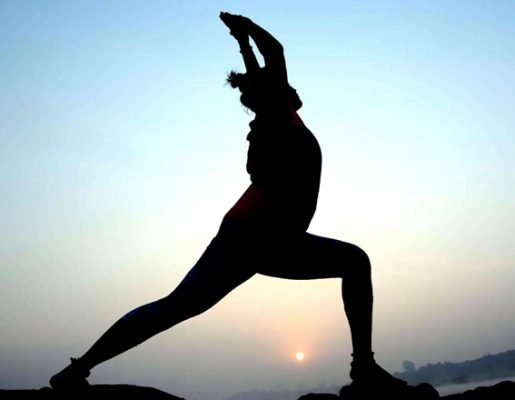
Telangana Today
Movement-based yoga can significantly improve mental health: Aus researchers
The research, published in the British Journal of Sports Medicine, analysed 19 studies with 1,080 participants across six countries -- US, India, Japan, China, Germany and Sweden.
by PTIMelbourne: Movement-based yoga can significantly reduce depressive symptoms in people during the ongoing coronavirus crisis, according to Australian researchers.
The researchers defined movement-based yoga as any form of yoga where participants are physically active at least 50 per cent of the time, that is forms of yoga that emphasise holding poses and flowing through sequences of poses.
The study, led by the University of South Australia and a medical researcher of the University of New South Wales (UNSW), found that movement-based yoga improves the mental health of people living with depression, post-traumatic stress, schizophrenia, anxiety, alcohol dependence and bipolar disorder.
The mental health improves with more yoga such people practised.
Jacinta Brinsley, the lead researcher of the University of South Australia, said it’s a welcome and timely finding given the current strict social distancing measures in place across the world due to the coronavirus crisis.
“As more and more people find themselves working from home and unable to physically catch up with their friends and family, we’re likely to see more people feel lonely and disconnected,” Brinsley said.
She said exercise has always been a great strategy for people struggling with these feelings as it boosts both mood and health. But as gyms and exercise classes of all kinds are now closed, people are looking for alternatives, and this is where yoga can help.
“Our review of available evidence shows that movement-based yoga improves symptoms of depression in people who have been diagnosed with a mental disorder. So, it’s very good news for people struggling in times of uncertainty,” Brinsley said.
The research, published in the British Journal of Sports Medicine, analysed 19 studies with 1,080 participants across six countries — US, India, Japan, China, Germany and Sweden — where individuals had a formal diagnosis of a mental disorder, including depression and anxiety.
“We found that across these studies, yoga showed greater reductions in depressive symptoms than other control groups, which included people on a waitlist for treatment, treatment as usual and attention control,” Simon Rosenbaum from UNSW Medicine said, adding that the more sessions per week people engaged in, the greater the benefit was.
However, Rosenbaum said while the results are promising, there were challenges.
“Importantly, the most vulnerable in our community are often the least likely to have access to exercise or yoga programmes despite the potential benefits,” Rosenbaum said.
The researchers also said their review has gaps that future studies will need to address.
“To understand the mechanism by which yoga has an effect on mental and physical health, we need more and better data on the intervention variables such as type of yoga, intensity, environment, instructor qualification, specific postures, cueing, philosophical focuses, mindfulness techniques and breathing techniques.
“But our results have significant implications and demonstrate that you don’t necessarily need to go for a jog to benefit from movement,” Rosenbaum said.
Globally, around 450 million people suffer from mental health issues, with the World Health Organisation reporting that one in four people will be affected by a mental health condition or a neurological disorder at some point in their lives. In Australia, almost half of adults (aged 18-85 years) will experience mental illness.